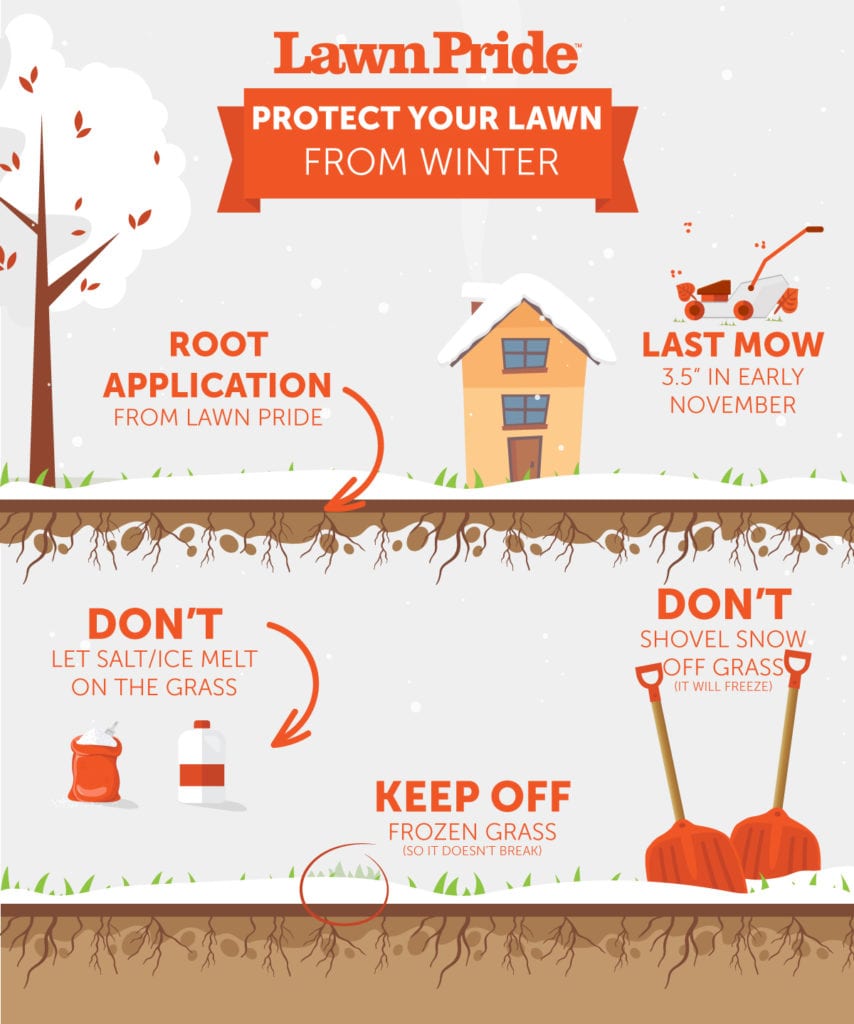
Credit: lawnpride.com

Credit: simplelawnsolutions.com
Introduction
Winter can be tough on your lawn. Cold weather, snow, and ice can damage grass. But you can take steps to protect it. Let’s learn how to keep your lawn healthy in winter.
Why is Winter Lawn Care Important?
Grass needs care even when it’s cold. Without care, the lawn can become weak. A weak lawn is more likely to get diseases. Winter care helps grass stay strong and healthy.
Steps to Protect Your Lawn in Winter
Follow these steps to protect your lawn during the cold months:
1. Mow Your Lawn Properly
Before winter, mow your lawn to the right height. Grass should be about 2.5 to 3 inches tall. This height helps grass survive the cold.
2. Remove Leaves And Debris
Keep your lawn clean. Remove fallen leaves and debris. Leaves can block sunlight and trap moisture. This can cause diseases.
3. Aerate Your Lawn
Aerating helps grass roots get air. Do this in early fall. It helps grass grow strong before winter.
4. Fertilize Your Lawn
Use a winter fertilizer. This gives grass nutrients to stay healthy. Apply it before the first frost.
5. Water Your Lawn
Water your lawn until the ground freezes. Grass still needs water in fall. But don’t overwater. Too much water can harm grass.
6. Avoid Heavy Traffic
Try not to walk on the lawn too much. Heavy traffic can damage grass. It can also cause soil to compact.
7. Protect From Snow And Ice
Snow and ice can be harmful. Remove heavy snow from the lawn. Use safe products to melt ice. Avoid salt, as it can damage grass.
8. Watch For Pests
Some pests are active in winter. Keep an eye out for them. Take action if you see any signs of pests.
Winter Lawn Care Tips
- Trim trees and bushes to prevent branches from falling on the lawn.
- Use a winter mulch to protect grass roots.
- Check your lawn regularly for signs of damage.
- Repair any damaged areas as soon as possible.
- Plan for spring care to help the lawn recover.
Common Winter Lawn Problems
Here are some common problems and how to fix them:
Snow Mold
Snow mold is a fungal disease. It happens when snow covers the grass for a long time. To fix it, rake the lawn to remove the mold.
Winter Desiccation
Winter desiccation occurs when grass loses too much water. To prevent it, water the lawn before winter. Also, use a winter mulch.
Ice Damage
Ice can damage grass. Remove ice carefully. Use sand or kitty litter to provide traction.
Frequently Asked Questions
How Do I Prepare My Lawn For Winter?
Mow the lawn shorter, aerate, fertilize, and remove debris. Protect your grass roots.
Should I Fertilize My Lawn In Winter?
Yes, apply a winter-specific fertilizer. It strengthens grass roots and promotes spring growth.
What Type Of Fertilizer Is Best For Winter?
Use a slow-release, high-potassium winter fertilizer. It fortifies the grass against harsh conditions.
How Often Should I Water My Lawn In Winter?
Water occasionally during dry spells. Overwatering can cause root rot and fungal diseases.
Conclusion
Winter lawn care is important. Follow these steps to protect your lawn. With proper care, your lawn can stay healthy and green. Enjoy a beautiful lawn all year round!
